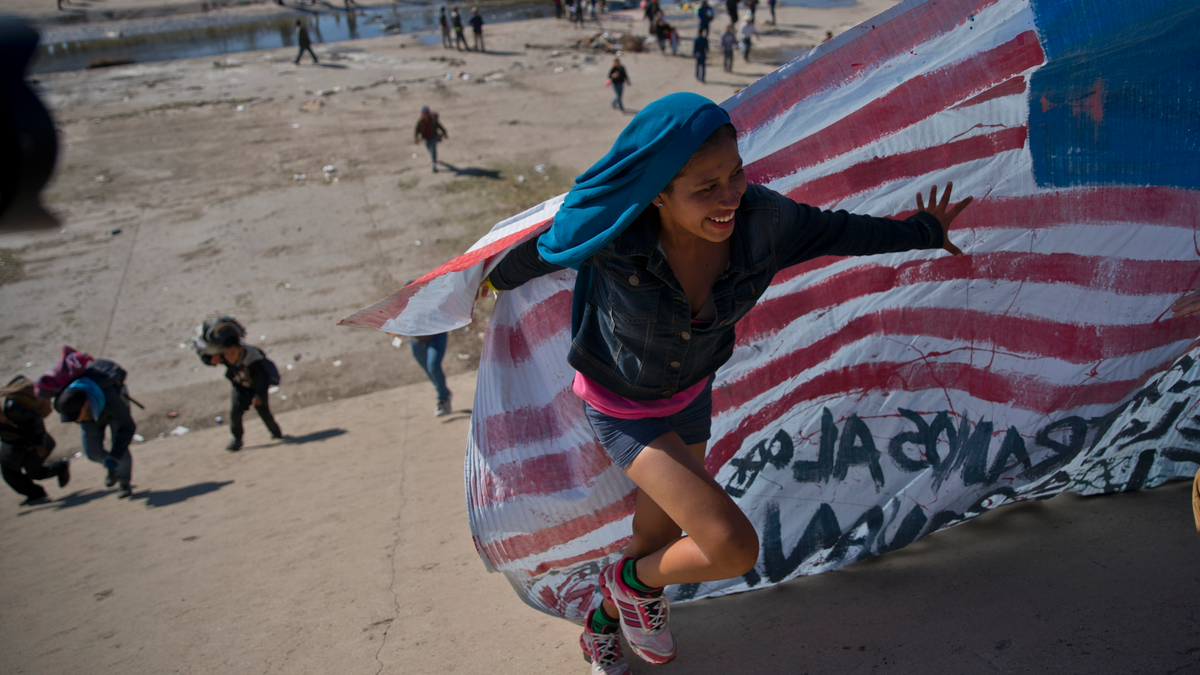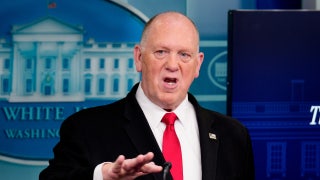
FILE - In this Nov. 25, 2018 file photo, a migrant woman helps carry a handmade U.S. flag up the riverbank at the Mexico-U.S. border. (AP Photo/Ramon Espinosa, File)
Can faith inform our search for an answer to the current immigration policy paralysis? For many, religious conviction and government policy are ethically independent of each other, as both play a unique role in society and our daily lives. While we may understand the role of the government to be separate, to an extent, from the role of the church, where is that intersection between government policy and the responsibility of the church in tricky areas such as immigration?
It’s obvious that the government exists to protect its citizens. So, how should Christians view the ongoing humanitarian crisis involving illegal immigration at the border? What about our support of legal immigration practices?
In the preamble of our Constitution, it reads that our government exists to “establish Justice, insure domestic Tranquility, provide for the common defense, promote the general Welfare, and secure the Blessings of Liberty to ourselves and our posterity.”
FAMILY SEEKS ANSWERS IN IMMIGRANT'S DEATH AFTER DETENTION
The church, in a similar manner, is supposed to be compassionate, caring, and even adept at serving “the least of these” (Matthew 25:45) – the vulnerable and the weak. In fact, our separation of church and state arguably encourages individuals to support charity, give to causes they hold dear, and get involved – not by compulsion, but precisely freely apart from the strong-arm of government.
This is partially evidenced by the fact that in 2018 in the United States charitable contributions topped $400 billion. This figure demonstrates our commitment to philanthropy and care.
According to Pew Research, the U.S. has more immigrants today than any other country in the world, and by a large margin. Many are caught between our current uncertainties and contradictory efforts at immigration law. As the Immigration and Customs Enforcement reports show, in 2018 immigrant arrests and deportations increased nearly 11% from the previous year. While we still await action on immigration reform, thousands live in fear of being separated from their families. This is a concern to citizens, and to Christians alike.
ARIZONA CHURCHES AT CROSSHAIRS OF IMMIGRATION DEBATE AFTER HOSTING GROWING NUMBER OF MIGRANTS
Immigration greatly strengthens our economy. According to the Institute on Taxation & Economic Policy, undocumented immigrants contribute more in taxes than they receive in benefits, paying nearly $11.6 billion in taxes a year. Making up 17% of the American workforce, immigrants boost our economy by taking jobs most Americans tend not to; just a few more reasons why we must work towards a resolution and also recognize the value of legal, merit-based immigration channels.
David Bossie, a confidant on Trump’s 2016 campaign said, “We need to welcome temporary high-skilled immigrants with Ph.D.s, master’s degrees and strong educational qualifications to maintain U.S. economic superiority in science, technology, engineering, and mathematics.” Our H-1B visa, for example, has incentivized brilliant minds from all over the world to come to the U.S. and contribute to our society. It is difficult to quantify the many ways these immigration policies have helped us as a nation.
CLICK HERE TO GET THE FOX NEWS APP
While families are being torn apart and lives drastically affected on a daily basis, can we continue to write this off simply as “a government issue?” Is this how we are called to be in relation with strangers? It may make things quite easier in some ways to separate the role of government from our spiritual convictions, but Scripture reminds us of Christ’s words, “I was hungry and you gave me food, I was thirsty and you gave me drink, I was a stranger and you welcomed me.” Matthew 25:35.
While we must abide by the rule of law, we can’t forget our call to compassion and we must remember – at some point in our lives and those of our ancestors – we were all strangers.








































